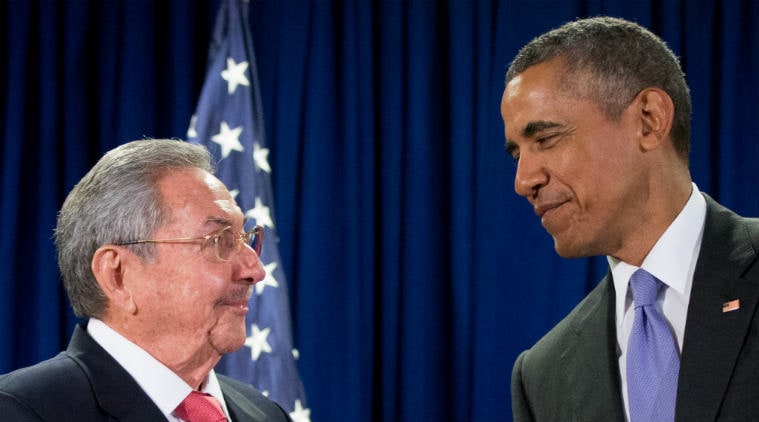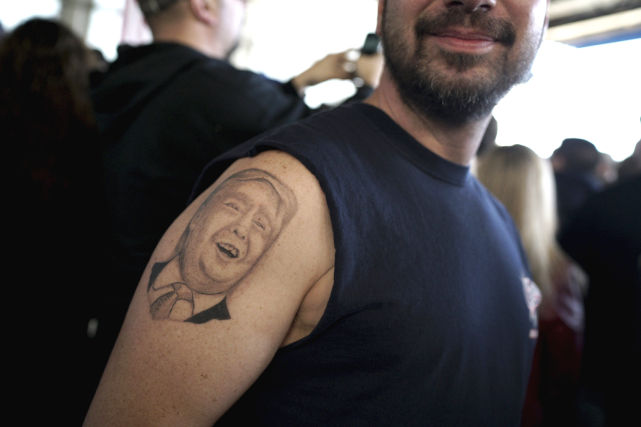
What Changes Will Obama’s Trip to Cuba Bring?
First, is the United States changing its tone? Indeed, one cannot deny that a certain transformation has taken place. For over half a century the United States viewed Cuba as a hostile state, and Obama's very willingness to normalize relations and visit Cuba while in office stands as evidence of U.S. policy adjustments. And while those adjustments have perhaps been only partly born of the United States' own initiative, with the remainder attributable primarily to force of circumstance, they are on the whole a positive step that has been long called for and is now universally welcomed by the international community.
However, parity in word and action is the true mark of change. The United States has not yet completely lifted its unilateral embargo against Cuba, nor has it returned ownership of its base at Guantanamo Bay to the Cuban government, and these vestigial tendrils of the Cold War linger on to put a damper on otherwise sanguine proceedings. Although Obama asserts that the United States has no intention and no power to enact change in Cuba and that the island nation's future and destiny belong solely to the Cuban people, he has met with several so-called Cuban "dissidents," sermonized to the Cuban people on human rights, and urged the Cuban administration not to "fear the different voices" of its people, making his intentions, both spoken and unspoken, abundantly clear. The United States has therefore indeed retuned its approach, but the end product is no more than a remix of one of its "golden oldies."
Second, will the "color" of the Cuban nation change? Such worries are not completely unfounded. Over the past several years, "color revolutions" have sprung up all over the world, and there are those who will certainly look to give countries showing signs of fracture that extra little nudge over the brink. Indeed, even for countries with a solid facing, there are some who may attempt to challenge that outward integrity with a few indelicate whacks of the political sledgehammer. The United States' new "tone" toward Cuba as it beams its remixed "oldies" over the Caribbean airwaves is just one such attempt.
Still, Cuba has borne aloft the standard of socialism for over 50 years under the very shadow of the United States, and having persevered through myriad plots and perils, the Cuban leadership will have no illusions about U.S. intent. Prior to Obama's visit, Cuban Communist Party official mouthpiece Granma published an editorial stating that certain principles were nonnegotiable, making clear the party's position. The fact that Obama saw all those he wished to see and said all that he wished to say during his trip is an indication of Cuba's confidence. It would therefore seem that those concerned about Cuba are worrying needlessly, while those with disingenuous motivations hidden within their Cuban outreach will only see their efforts come to naught.
Third, will the "flavor" of China-Cuba relations change simply because of warming U.S.-Cuba ties? There is more imagination than truth baked into such a connection. Such a view is simply too dismissive of Cuba's stubborn independence, as the island is not under the sway of any outside state and need not sacrifice one relationship to establish another. This narrative also sorely underestimates Chinese magnanimity, for China has never subscribed to geopolitical competition and serving its own interests at the expense of other states, and as such will not engage in any territorial tug-of-war.
Foreign Ministry spokeswoman Hua Chunying has stated that the development of China-Cuba relations is not directed against any third party, nor will it be be affected by any third party. This means that China respects and values each of its cooperative partnerships, including that with Cuba, and that China has confidence in itself, its foreign policy guidelines, and its partnerships. Looking upon the past, present and future, China's partners will be well aware of which friends they can truly rely on and confide in moving forward.
So in the end, how much change will Obama's visit to Cuba bring? We can simply watch these matters unfold over time, although the island's landscape is certain to evolve dramatically in the coming years. But a picture is worth a thousand words, and with direct flights having already been established between China and Cuba, the curious may well choose to book a trip and see for themselves; perhaps in doing so, many of these questions will naturally find their own answers.

